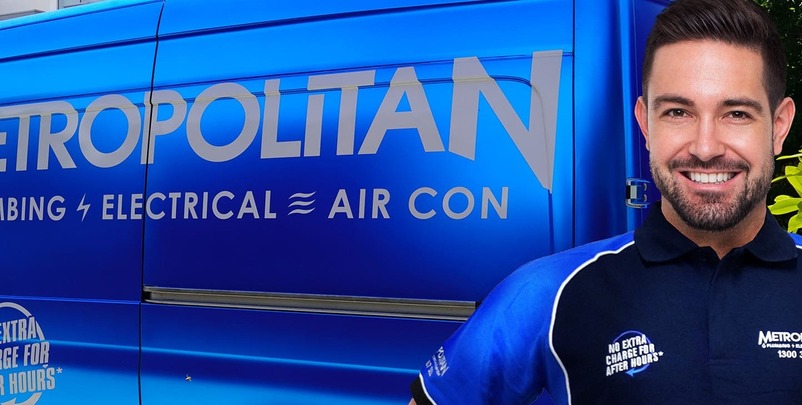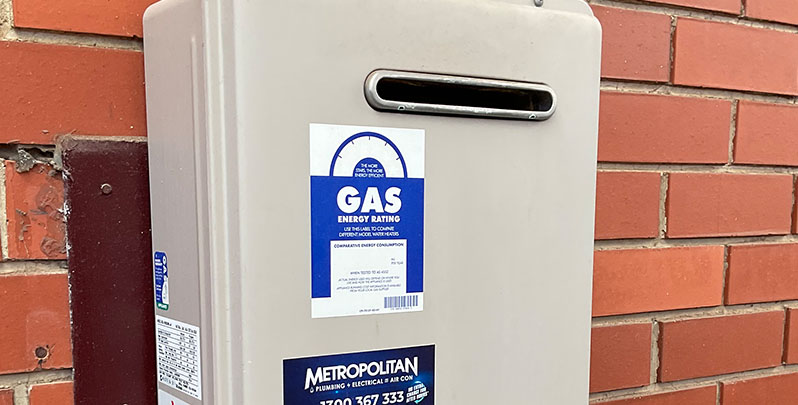
What Size Hot Water System Do I Need?
Hot water systems are essential in every household, providing heated water for various daily needs such as showering, washing dishes, and laundry. But with many options available, how do you choose the right one for your home?
Are you aware of the differences between solar, gas, electric, and heat pump hot water systems? This comprehensive guide will walk you through selecting the most suitable hot water system, helping you decide based on energy efficiency, cost, and maintenance requirements.
This blog post will discuss the different types of hot water systems, their advantages and disadvantages, and the factors to consider when choosing one for your home. We will also compare continuous flow and storage hot water systems and provide tips for maximising hot water efficiency.
By the end of this guide, you will understand the various hot water system options and be better equipped to make an informed decision when purchasing a new one.
Understanding Different Hot Water Systems
To make an informed decision on the best hot water system for your home, it is essential to understand the four main types of hot water systems:
- Solar
- Gas
- Electric
- Heat pump
Each system has advantages and disadvantages, which will influence your choice based on factors such as energy efficiency, cost, and maintenance requirements.
Solar hot water systems are the most energy-efficient and eco-friendly option for most households but come with higher upfront installation costs. On the other hand, gas hot water systems provide rapid water heating and are cheaper to run than electric systems, but they may require more space and have higher installation costs.
Electric hot water systems are easy to install and maintain, but their running costs are typically higher than gas or solar systems. Lastly, heat pump hot water systems are energy efficient and cost-effective but may require more space and have higher upfront costs than other systems.
Solar Hot Water Systems
Solar systems use the sun’s energy to heat water, making them an energy-efficient and eco-friendly choice for your home. These systems are particularly advantageous due to their low running costs and minimal environmental impact.
However, one primary drawback of solar powered systems is the higher upfront installation costs, ranging from $3,000 to $7,000.
To make solar hot water systems more accessible, the government offers various incentives and rebates for their installation. By researching your state’s available incentives and rebates, you can offset some initial expenses, making a solar-powered system a more cost-effective option in the long run.
Gas Hot Water Systems
Gas hot water systems, including the gas hot water system, utilise gas as the fuel source to heat water and come in various types, such as gas storage systems, gas instantaneous systems, and gas continuous flow systems. These systems are known for their rapid water heating capabilities and are generally more economical to operate than electric systems.
However, gas hot water systems may have higher installation costs than electric systems and require more space for installation. Despite these drawbacks, gas systems can be an excellent choice for households prioritising quick water heating and lower running costs.
Electric Hot Water Systems
Electric hot water systems are popular for residential and commercial properties due to their ease of installation and maintenance. These systems can be storage systems, where water is heated and stored in a tank, or electric instantaneous water heaters, where water is heated as it passes through the system.
Although electric hot water systems are more cost-effective to purchase and install than gas systems, their running costs are generally higher. It makes them a suitable option for those prioritising ease of installation and maintenance but may not be the most economical choice for households with high hot water usage.

Heat Pump Hot Water Systems
Heat pump hot water systems:
- Use a heat pump to transfer heat from the air or ground to heat water
- Provide an energy-efficient alternative to traditional electric or gas hot water systems
- Are highly efficient and economical
- Consume less energy than conventional systems
- Require minimal upkeep
However, heat pump hot water systems may necessitate additional space. They might also entail higher initial expenses than traditional electric or gas hot water systems. They may also be less effective in colder climates. Despite these drawbacks, heat pump systems can provide long-term cost savings and are an environmentally friendly option for heating your home’s water.
Factors to Consider When Choosing a Hot Water System
When selecting a hot water system for your home, it is crucial to consider factors such as:
- Household size
- Hot water usage habits
- Energy source
- Budget
The type of system you choose will depend on your specific needs and preferences and the availability of energy sources in your area.
For instance, a large household with high hot water usage may opt for a gas or solar hot water system due to its lower running costs. Alternatively, if you live in an area with limited access to natural gas, an electric or heat pump hot water system may be a more suitable option.
By considering these factors, you can ensure that you choose the most appropriate hot water system for your home.
Continuous Flow vs. Storage Hot Water Systems
Storage hot water systems and continuous flow hot water heaters are the two primary types of systems available in the market. Continuous flow systems heat water only as needed without requiring a storage tank. These systems are ideal for households with fewer than five people. They can simultaneously supply hot water to multiple hot water outlets.
In contrast, a storage hot water system:
- Heats and stores water in an insulated tank
- Is ready for use when needed
- May be more suitable for larger households or those with high hot water usage during peak times
When comparing these two types of systems, consider factors such as household size, hot water usage habits, and available energy sources. These will help you to determine the best option for your home.
Sizing Your Hot Water System
There are some key points to consider when you’re determining the right size hot water system for your home. Think about your household size, when everyone tends to use hot water the most, and what type of system you’re going for. Say you’re looking at a gas instant hot water system. Here, the number of taps you can use simultaneously matters a lot when it comes to hot water consumption.
Now, consider this: an average shower gobbles up about 15 litres of water every minute. On a daily basis, each person uses roughly 50 litres. So, you need to factor in:
- family size
- how many showers you have hooked up
- the showerhead types, and
- how often everyone showers at the same time
This will help you work out just how much hot water your system needs to deliver for your home.
Cost and Energy Efficiency Comparisons
When comparing different types of hot water systems, it is essential to consider both their cost and energy efficiency. Here are some key points to keep in mind:
- Gas systems are generally more cost-effective than electric systems.
- Heat pump water heaters are considered one of the most energy-efficient options.
- Solar powered systems are also highly energy-efficient.
Heat pump water heaters use 30% less energy than a conventional electric hot water system. Solar hot water systems also boast low operating costs and are highly efficient.

Installation and Maintenance Considerations
When installing a hot water system, it is essential to consider factors such as space requirements, warranty, and professional assistance. Some hot water systems may require space for installation. Complying with local regulations and submitting applicable forms is crucial for a smooth installation process.
Regular maintenance is necessary to ensure the proper functioning of your hot water system. This includes:
- Checking the temperature and pressure relief valve
- Inspecting the anode rod, and
- Flushing the system to eliminate sediment accumulation.
Moreover, by law in Australia, you’ll need a licensed plumber to install your hot water system. This guarantees correct and secure installation and compliance with strict Australian regulations.
Tips for Maximising Hot Water Efficiency
You can employ several strategies to maximise the efficiency of your hot water system. Using water-efficient showerheads can help conserve water while also providing cost savings.
Replacing an existing showerhead that flows at 15L/min with a higher-rated Water Efficiency Labelling Scheme (WELS) model can benefit households. Savings resulting from this substitution can be significant for families of four or more people.
Other strategies for optimising hot water efficiency include insulating pipes to reduce heat loss and performing regular maintenance to ensure the system’s proper functioning. Implementing these measures allows you to enjoy a more efficient hot water system and lower your energy bills.
Understanding Your Hot Water Systems
When asking yourself the question “What size hot water system do I need?”, you’ll do well to understand certain things. They are the different hot water system types, their advantages and disadvantages, and the factors to consider when choosing a hot water heater.
Whether you prioritise energy efficiency, cost-effectiveness, or ease of installation and maintenance, there is a hot water system that can cater to your specific needs.
By taking the time to research and compare options, you can ensure that you are selecting the best product for your needs and avoiding rushing into replacing the system with a similar one. With this comprehensive guide, you are better equipped to make an informed decision when purchasing your home’s new hot water system.
Please note: This information is provided for advice purposes only. Regulations differ from state to state, so please consult your local authorities or an industry professional before proceeding with any work. See our Terms & Conditions here.
Published: 2023-08-22

















